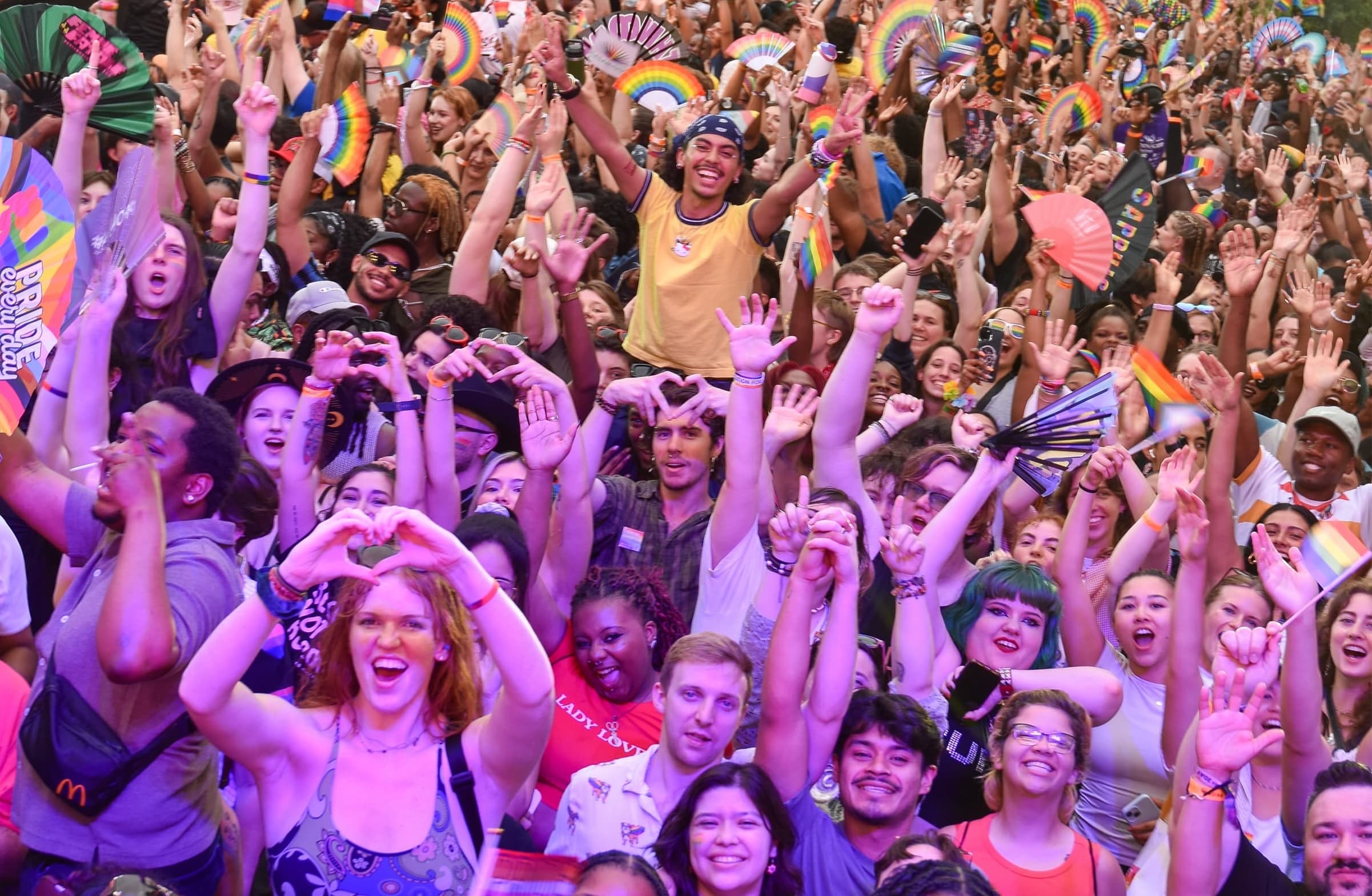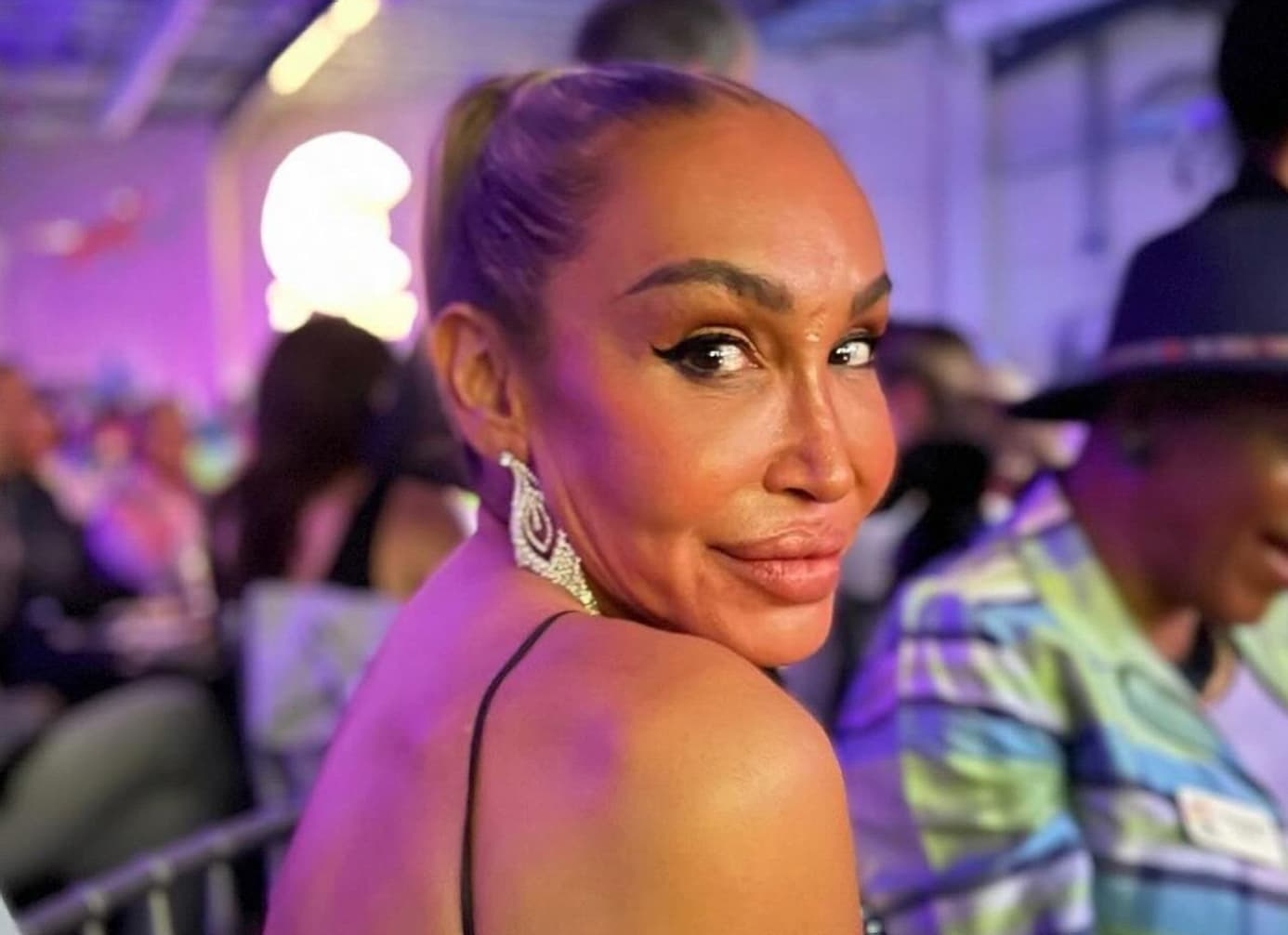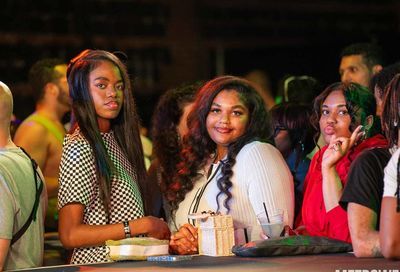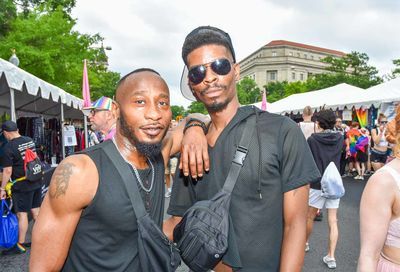What’s the matter with Illinois?
The Land of Lincoln is at the forefront of LGBTQ rights, so why is there so much anti-LGBTQ sentiment emerging?

In September, Illinois found itself briefly in the spotlight after a group of conservative parents attempted to pull a gay-themed book off the shelves of the West Chicago Public Library. The reason? The book, This Day in June by Gayle E. Pitman, contained colorful drawings of a pride parade, with a glossary of terms on how to discuss the LGBTQ community. Despite outcry from some parents over whether the book was age-appropriate for children, the library trustees stood firm, voting 6-1 to reject the ban.
While relatively minor, the story is part of a steady trickle of newsworthy moments from anti-LGBTQ forces coming out of Illinois.
At the start of this year, the state was in the news again when a federal court rejected a lesbian senior citizen’s lawsuit against her assisted living facility. Marsha Wetzel, a resident of Glen St. Andrew Living Community in Niles, alleged that management did nothing to help her after residents harassed and physically attacked her once they learned she was a lesbian. Wetzel is currently in the process of appealing the decision to dismiss her lawsuit.
Then, just last week, Republican gubernatorial candidate and State Representative Jeanne Ives, of Wheaton, aired a horrific campaign ad attacking Gov. Bruce Rauner for negotiating with Democrats who run the state legislature — or in Ives’ view, kowtowing to their demands and signing their preferred legislation into law.
In the ad, Ives targeted Rauner’s decision to sign a bill into law allowing transgender people to change the gender marker on their birth certificate. To represent the transgender community, the ad featured an unkempt, hairy male actor in a red dress, growling at the camera: “Thank you for signing legislation that lets me use the girls’ bathroom.”
Despite the glaring inaccuracies in Ives’ characterization of Rauner’s record — particularly with respect to the birth certificate bill — she refused to take down the ad, standing by its message even as she acknowledged that it was “generating the expected hysteria from the expected quarters.”
“The commercial does not attack people,” Ives said during a public appearance in which she failed to address the fact that many transgender people found the ad offensive. “It tackles issues by truthfully illustrating the constituencies Rauner has chosen to serve to the exclusion of others.”
Also last week, members of Aurora City Council twisted themselves into pretzels when faced with the simple question of whether to approve a permit for a “G-rated” Pride Parade. Despite support from the mayor and a coalition of residents pushing for the parade, there was a legitimate possibility that the City Council might reject the permit to appease religious conservatives who were afraid of what Pride might entail.
On Tuesday night, the Council relented, agreeing to grant the permit for a parade that would be paid for by private funds, and, by all accounts, was going to be tame compared to parades held in other cities.
The number of newsworthy anti-LGBTQ moments being generated in Illinois seems surprising, given the state is widely considered at the forefront of passing pro-LGBTQ rights legislation. However, Brian Johnson, the CEO of Equality Illinois, says that the sensational headlines are actually a good thing — a sign that the regular, pro-LGBTQ people of Illinois don’t consider such bigotry normal.
“Because we have so many brave champions and leaders and allies across the state that are willing to stand up [for] LGBTQ rights, when we do see the isolated examples that would go unreported or unexposed in other states, they rarely go unreported here in Illinois,” says Johnson. “Our state is really shining a light on the way people are still trying to resist equality for LGBTQ people.”
Johnson’s interactions across the state indicate that the tolerance for anti-LGBTQ antics is fairly low, and overwhelmingly bipartisan in nature.
“When I weigh the amount of evidence that shows we are marching forward to full equality and acceptance against a handful of deeply disappointing isolated stories from disappointingly reactionary forces in various communities, it’s hard for me to accept the frame that we’re seeing a backlash across the state,” he says.
Dick Simpson, a professor of political science at the University of Illinois-Chicago and a former Chicago alderman, agrees that anti-LGBTQ social conservatives — the sort who might be attracted to Ives’ insurgent campaign — have little clout in state politics, and perhaps even among the GOP faithful.
“The Ives campaign particularly, but the Tea Party Radical Right Republicans, are having a backlash against the moderate Republicans, which would include, in this case, Gov. Rauner,” says Simpson. “They are not a majority in the state. They may be a majority in the Republican Party, but Rauner will win the election and go against the Democratic nominee in the fall.
“President Trump’s campaign has empowered the radical right to take on these issues more vigorously,” he adds. “[But] in general, the LGBT community will not see much in terms of rollback or change in law.”
Johnson says that while he expects no change in the level of equality that LGBTQ Illinoisans enjoy, incidents like those that have made headlines are always a good reminder that progress is not necessarily linear or constant.
“Our rights are never perpetually guaranteed,” he says. “We’ve seen that in the civil rights movement, in the reproductive freedom movement, and we’ve seen that in the repeal of marriage equality in Bermuda. It’s just a reminder that we have to be vigilant.”
Support Metro Weekly’s Journalism
These are challenging times for news organizations. And yet it’s crucial we stay active and provide vital resources and information to both our local readers and the world. So won’t you please take a moment and consider supporting Metro Weekly with a membership? For as little as $5 a month, you can help ensure Metro Weekly magazine and MetroWeekly.com remain free, viable resources as we provide the best, most diverse, culturally-resonant LGBTQ coverage in both the D.C. region and around the world. Memberships come with exclusive perks and discounts, your own personal digital delivery of each week’s magazine (and an archive), access to our Member's Lounge when it launches this fall, and exclusive members-only items like Metro Weekly Membership Mugs and Tote Bags! Check out all our membership levels here and please join us today!




























You must be logged in to post a comment.